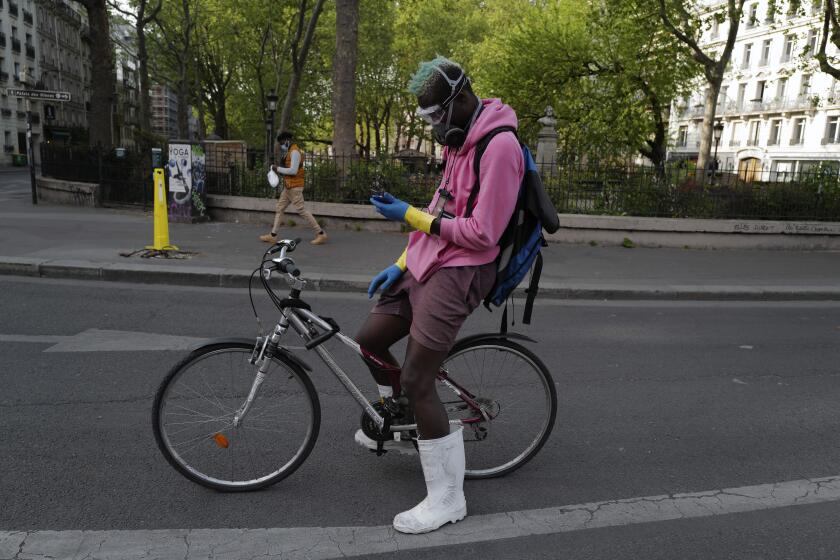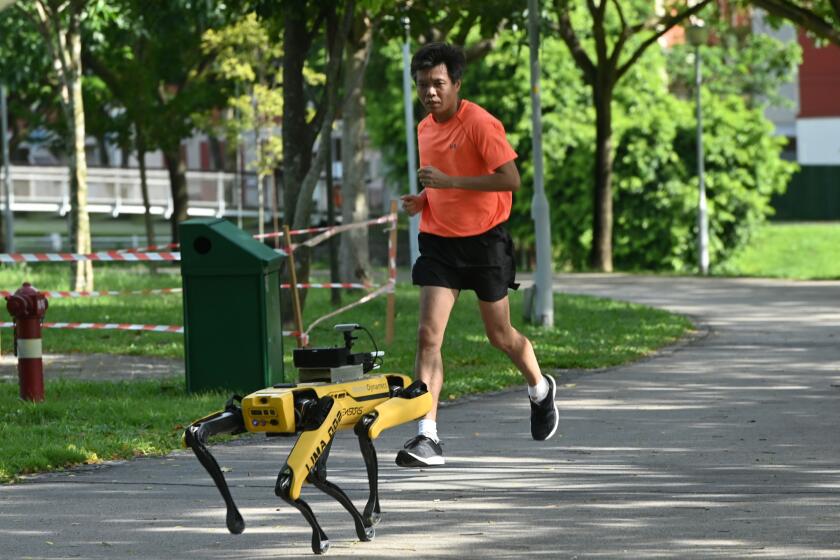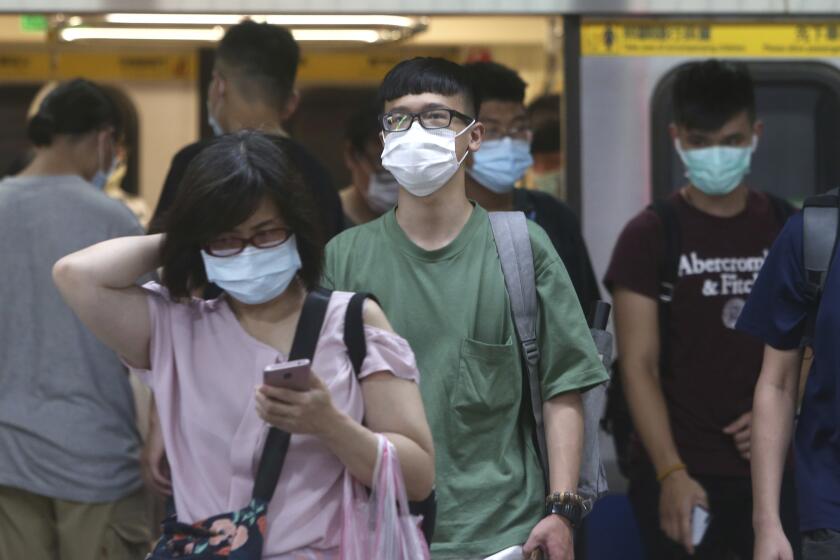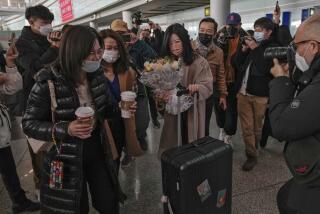Britain lowers virus alert; Germany sees spike in cases
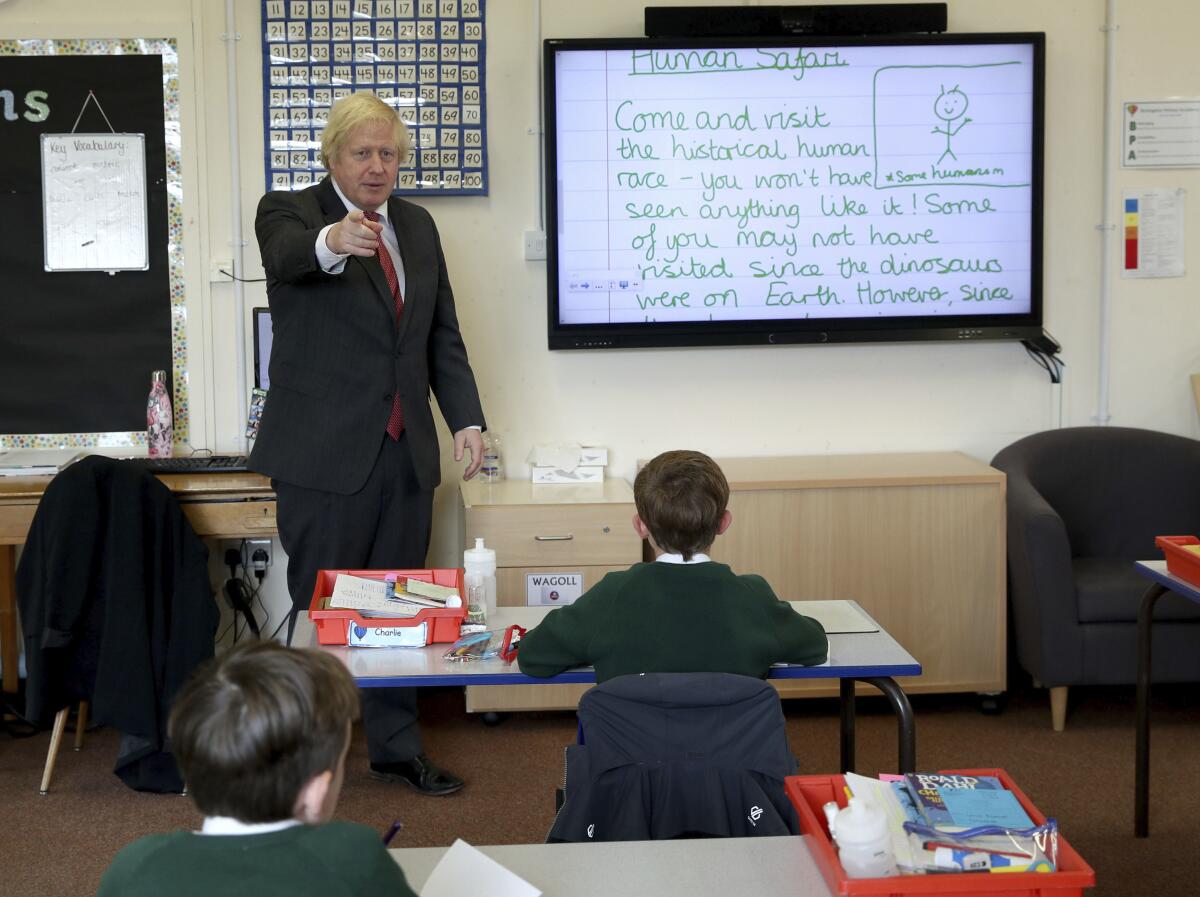
- Share via
Britain lowered its coronavirus threat level one notch Friday, becoming the latest country to claim it’s getting a national outbreak under control.
The U.K.’s Joint Biosecurity Center recommended moving the COVID-19 risk in the country from the second-highest level of 4 — which means transmission is high or rising exponentially — to Level 3, where an epidemic is in general circulation.
Health officials say there’s been a steady decrease in cases across the U.K., but localized outbreaks are still likely. Britain has Europe’s highest pandemic death toll, with more than 42,000 coronavirus-related deaths and over 300,000 confirmed cases.
Lowering the alert level was “a big moment for the country, and a real testament to the British people’s determination to beat this virus,” Health Secretary Matt Hancock said.
Meanwhile, Germany on Friday reported the country’s highest daily increase in virus cases in a month after managing to contain its outbreak better than other large European nations. The Robert Koch Institute, Germany’s disease control center, listed 770 new confirmed cases, taking the country’s total to 188,534.
A flurry of positive tests this week from an outbreak at a slaughterhouse in the western region of Guetersloh contributed the biggest daily increase since May 20.
A leader in dealing with the coronavirus, Germany has reopened its houses of worship — but a new coronavirus outbreak shows that risks remain.
The German government has stuck to its course of gradually reopening the country while seeking to clamp down swiftly on localized outbreaks.
A free mobile app launched Tuesday to help trace people who may have been exposed to the virus has already been downloaded 9.6 million times in Germany, which has a population of 83 million.
Japan released a similar app Friday, also using technology developed by Apple and Google. Officials say data will only be recorded and stored in individual users’ phones and deleted after 14 days to protect their privacy.
“We hope a widespread use of this app will lead to prevention of infections,” Japanese Health Minister Katsunobu Kato said.
France is rolling out its coronavirus contact-tracing app aimed at containing fresh outbreaks as the country’s lockdown restrictions gradually ease.
Singaporeans were able to wine and dine at restaurants, work out at the gym and socialize with up to five people at a time as of Friday after the Asian city-state removed most of its pandemic lockdown restrictions.
“It was a long-awaited experience,” said Thomas Tan, a 34-year-old customer service officer eating in an outdoor market. “It’s good to be able to eat outside with friends, but there still must be social distancing.”
After at first appearing to have been a model for containing the virus, the country of only 5.8 million has one of the highest infection rates in Asia with 41,473 cases, mostly linked to foreign workers’ dorms. Authorities say such cases have declined, with no new large clusters and a stable number of other cases despite a partial economic reopening two weeks ago.
The reopening of stores and other public places has been blamed for touching off fresh spikes in infections in a number of countries, raising questions for governments about how to tread the line between keeping economic and social life going while avoiding unnecessary deaths.
The semiautonomous Spot is a test of how machines could help reduce human contact as economies reopen.
China declared a fresh outbreak in Beijing under control after confirming 25 new cases among some 360,000 people tested. That was up by just four from a day earlier.
A Chinese Center for Disease Control and Prevention official said the number of cases was expected to fall soon in an outbreak centered on Beijing’s main wholesale market. So far Beijing has confirmed 183 new cases over the past week.
The 25 new cases reported Friday in Beijing were among 32 nationwide in China, four of them in Chinese who had returned from overseas.
Such outbreaks are inevitable, Wu Zunyou of the Chinese Center for Disease Control and Prevention told a news conference. But he emphasized that prevention measures should not slacken.
Asian economies are reopening with limits on crowds at restaurants and casinos, temperature checks at malls and requirements to wear masks.
Beijing suspended classes and put reopening plans for everything from sports events to art exhibitions on hold. Bus travel to other regions was suspended to prevent the spread of the outbreak.
The pandemic is waxing and waning in many places, with numbers of cases soaring in Indonesia, India, Brazil and Mexico, but appearing to be under control or contained in Thailand, Japan, Vietnam and New Zealand.
India recorded 13,586 new cases on Friday, raising its total to 380,532. Still, shops, malls, factories and places of worship have been allowed to reopen while schools and cinemas remain shuttered.
Infections surged in rural areas after hundreds of thousands of migrant workers lost their jobs in a lockdown announced in late March and left cities. Such precautions are now restricted to high-risk “containment” zones.
More to Read
Sign up for Essential California
The most important California stories and recommendations in your inbox every morning.
You may occasionally receive promotional content from the Los Angeles Times.

